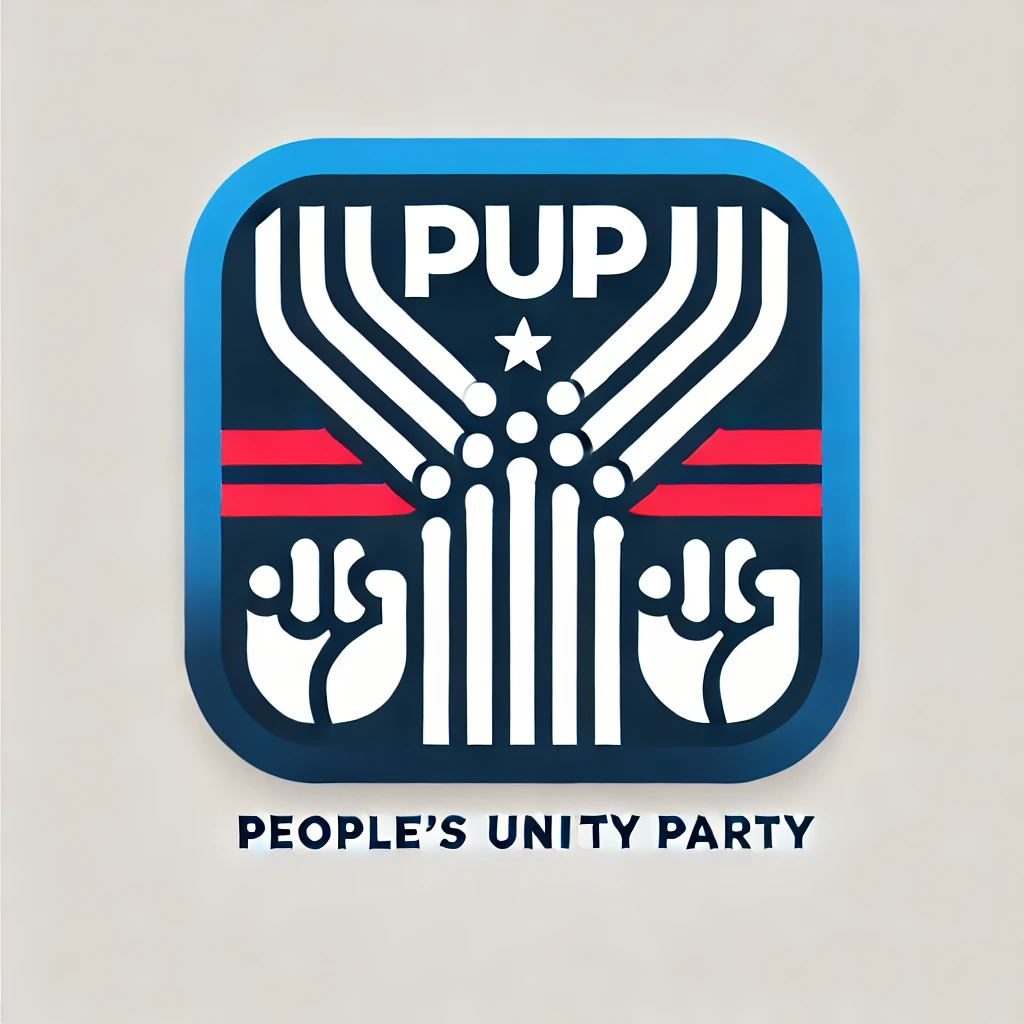


The People’s Unity Party (PUP)
The People’s Unity Party (PUP) is an independent movement focused on empowering hard-working middle-class Americans who have been overlooked by both major political parties. While starting as a wing of the Democratic Party due to its pro-worker stance, PUP remains independent in its mission to create policies that support unions, affordable education, fair wages, and transparency in government.
Powered by

The Affordable Housing and Homeownership Protection Act
Purpose:
To ensure affordable housing for all Americans by increasing the supply of affordable homes, protecting individual buyers from corporate overreach, stabilizing rental markets, and reducing homelessness.
Section 1: Short Title
This Act may be cited as the Affordable Housing and Homeownership Protection Act.
Section 2: Findings
Congress finds that:
1. The rising cost of housing has made homeownership unattainable for many Americans, particularly first-time buyers.
2. Corporate purchases of residential properties contribute to market inflation, reducing access for families and individuals.
3. Stabilizing the housing market and increasing affordable housing supply are essential to ensuring economic security and reducing homelessness.
Section 3: Definitions
1. Affordable Housing: Housing units priced to ensure individuals earning up to 80% of the area median income (AMI) spend no more than 30% of their income on housing costs.
2. Corporate Purchases: Purchases of residential properties by corporations, investment firms, or entities owning more than 10 residential units.
3. Supplemental Housing Fund: A federal fund dedicated to creating affordable housing and rehabilitating existing properties.
Section 4: Increasing Affordable Housing Supply
1. Federal Tax Credits and Grants:
• Allocate $25 billion annually in tax credits and grants for developers building affordable housing units.
• Require all federally funded housing projects to reserve at least 20% of units for affordable housing.
2. Revitalizing Vacant Properties:
• Establish a $10 billion fund to rehabilitate vacant or abandoned homes and prioritize their sale to first-time buyers earning below 120% of AMI.
3. State and Local Partnerships:
• Provide matching federal funds to state and local governments for zoning reforms that encourage affordable housing construction.
Section 5: Protecting Individual Buyers from Corporate Overreach
1. Limiting Corporate Purchases:
• Prohibit corporations from purchasing more than 10% of single-family homes in any metropolitan area annually.
• Require corporations purchasing residential properties to convert at least 50% of acquisitions into affordable rental units.
2. Individual Buyer Priority:
• Mandate a 60-day listing period for all residential homes, during which only individuals and families can submit purchase offers.
• Provide first-time homebuyers with priority access to government-subsidized housing programs.
3. Federal Penalty for Violations:
• Impose a 15% excise tax on corporations violating purchase limits or failing to convert properties to affordable housing within one year.
Section 6: Making Homeownership More Accessible
1. Down Payment Assistance:
• Create a federal grant program providing up to $15,000 for first-time homebuyers with incomes below 120% of AMI.
2. Low-Interest Mortgages:
• Expand access to federally backed mortgage programs with interest rates capped at 3% for low- and middle-income buyers.
3. Capping Property Tax Increases:
• Limit annual property tax increases to 2% for owner-occupied homes valued below 120% of AMI.
Section 7: Stabilizing the Rental Market
1. Federal Rent Control Guidelines:
• Cap annual rent increases at 5% in high-demand areas or tie increases to inflation, whichever is lower.
• Require states to adopt federal guidelines to receive housing-related funding.
2. Tenant Protections:
• Ban no-cause evictions and require landlords to provide a minimum 90-day notice for lease terminations.
• Establish a $1 billion fund to support legal aid services for tenants facing eviction.
Section 8: Addressing Homelessness
1. Housing First Program:
• Allocate $10 billion annually to fund permanent supportive housing for individuals and families experiencing homelessness.
• Partner with local governments to integrate mental health and job training services with housing programs.
2. Emergency Housing Fund:
• Create a $5 billion fund for temporary shelters and transitional housing, prioritizing areas with high homelessness rates.
Section 9: Funding and Enforcement
1. Luxury Housing Tax:
• Impose a 1% annual tax on residential properties valued over $2 million, with revenue dedicated to the Supplemental Housing Fund.
2. Vacant Property Tax:
• Impose a federal tax on properties left vacant for more than six months, with exemptions for properties under active rehabilitation.
3. Oversight and Enforcement:
• Establish a Federal Housing Oversight Authority to monitor compliance with corporate purchase limits, tenant protections, and affordable housing mandates.
Section 10: Reporting and Transparency
1. Annual Report:
• Require the Department of Housing and Urban Development (HUD) to submit an annual report to Congress on the Act’s implementation, including data on housing affordability, corporate purchases, and homelessness rates.
2. Public Dashboard:
• Create an online dashboard for the public to track the use of federal housing funds, the number of affordable units created, and enforcement actions taken.
Section 11: Effective Date
This Act shall take effect on January 1, 2025, with full implementation by January 1, 2026.
Section 12: Severability
If any provision of this Act is found to be unconstitutional or invalid, the remaining provisions shall remain in effect.
Conclusion
The Affordable Housing and Homeownership Protection Act ensures that every American has access to affordable housing, protects homebuyers from corporate exploitation, and stabilizes rental markets. This legislation prioritizes families over profits and secures the right to housing for all.
Related Blogs
View All





